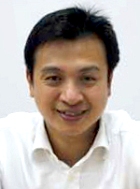By Zach Isaiah Chiah


In our series, we looked at the work of non-government organisations from different angles. PAP MP Dr Chia Shi-Lu, who is involved in My Community which was responsible for getting the government to preserve three sites in Queenstown — Alexandra Hospital, Commonwealth Avenue Wet Market and Queenstown Public Library — talks to The Independent Singapore .
The success in preserving the three sites was due to an alignment of thinking from the beginning, said Dr Chia
He said the My Community group “had been very successful in helping to rationalise and crystallise ground support to the end”.
Dr Chia did not want to be drawn into commenting on whether some NGOs were more successful than others because there were too many factors involved. However, he said, it “depends on the readiness and inclination on both sides to engage and collaborate”.


Engagement and collaboration are dependent on communication and how the other party views the communication. “In the Singapore context a slightly more considered approach tends to work better, perhaps because when the noises are too loud it may affect credibility”.
“I would imagine that in Western societies brash approaches are more acceptable and perhaps even admired.”
When asked if there were any NGOs or interest groups that stood out as having successfully convinced the government to change its views, Dr Chia replied that many instances in healthcare and housing have been cited as cases where interest groups have been deemed to have exerted “some influence”, although the veracity of the claim is difficult to determine.
“It is probable that in many cases the thinking has been aligned from the beginning.”
What if the objectives differ?
In a previous article, it was noted that political considerations were an important factor. Where political risks loom, objectives begin to differ. John Gee, immediate past president of Transient Workers Count Too (TWC2), argued that politically uncomfortable issues like transient workers found it harder to obtain support from the government.
Dr Chia agreed, “Often these are sensitive matters.”
He added that, when a cause was just, the government would engage on such matters but would take, “particular care with messaging and explaining the thinking behind any such move.” Dr Chia did not elaborate on what was a just cause.
One area where a just cause is probably apparent is charity.
“VWOs though do have a strong influence in shaping social policies, and indeed the relevant Ministries in Singapore actively and frequently seek their input.”
Dr Chia said “a wise government is governed by the people for the people”. It is for this reason that, “public sentiment and sensibilities should always be a key consideration in policy making.”
In his view, much progress has been made regarding government working with NGOs and interest groups, although more can be done. To NGOs and interest groups, he has the following to say, “open all channels of communication, remain open [and stay] collaborative.”
Just as Terence Chong of the Singapore Heritage Society was positive about working with the government, Dr Chia too is optimistic about the present, “the climate is certainly encouraging”.
NGOs: Why some succeed, some don’t
NGO-government relations: The art of the possible


